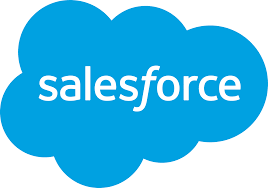In today’s digital age, data security is paramount for businesses. With the increasing reliance on cloud-based solutions and the growing threat landscape, organizations must implement robust security measures to safeguard their data and protect their business operations.
Salesforce, a leading customer relationship management (CRM) platform, offers a range of security features and best practices that can help ensure the safety of your data. In this article, we will explore 10 ways to protect your data and business with Salesforce’s best security practices, according to industry experts providing Salesforce training in Nagpur.
But first, let’s understand what Salesforce is and why it is crucial for businesses. Salesforce is a cloud-based CRM platform enabling organizations to manage customer relationships effectively. It provides a comprehensive suite of tools and features that empower businesses to streamline their sales, marketing, and customer service processes.
With its vast array of functionalities and extensive customization options, Salesforce has become the go-to CRM solution for businesses of all sizes and industries.
Now, let’s dive into the 10 ways to protect your data and business with Salesforce’s best security practices, as recommended by experts providing Salesforce classes in Nagpur:
10 Ways to Protect Your Data:
1. Enable Two-Factor Authentication (2FA):
Enabling 2FA adds more security to your Salesforce account. By requiring users to provide two forms of identification (such as a password and a verification code), you can significantly reduce the risk of unauthorized access to your data.
2. Set Up IP Restrictions:
By configuring IP restrictions, you can specify the range of IP addresses from which users can access your Salesforce account. This helps prevent unauthorized access from unknown or suspicious locations.
3. Implement Role-Based Access Control (RBAC):
Leverage Salesforce’s RBAC capabilities to define user roles and permissions based on their responsibilities within the organization. This ensures that users can only access the data and functionalities necessary for their job roles, reducing the risk of data breaches.
4. Regularly Monitor User Activity:
Keep a close eye on user activity logs to identify suspicious or abnormal behavior. Monitoring user activity can help detect and prevent unauthorized access attempts and data breaches.
5. Encrypt Sensitive Data:
Salesforce provides robust encryption mechanisms to protect sensitive data at rest and in transit. Take advantage of encryption features, such as Platform Encryption and Transport Layer Security (TLS), to safeguard your data from unauthorized access.
6. Implement Data Loss Prevention (DLP) Policies:
DLP policies help prevent the unauthorized sharing or leakage of sensitive data. Configure DLP rules within Salesforce to monitor and control the data flow, ensuring it complies with your organization’s security policies and regulations.
7. Regularly Update and Patch Salesforce:
Stay updated with the latest releases and security patches. Regularly applying updates and patches helps protect your Salesforce instance from known vulnerabilities and security exploits.
8. Educate Employees on Security Best Practices:
Human error is often a significant factor in data breaches. Conduct regular training sessions to educate your employees on security best practices, such as creating strong passwords, recognizing phishing attempts, and securely handling customer data.
9. Employ Data Backup and Recovery Strategies:
Implement regular data backup procedures to ensure you have a copy of your critical data in case of data loss or system failures. Consider using Salesforce’s built-in data backup and recovery features or third-party backup solutions.
10. Regular Security Audits with Salesforce:
Perform periodic security audits to assess the effectiveness of your Salesforce security measures. This includes reviewing user permissions, access controls, and security configurations to identify any vulnerabilities or areas for improvement.
Conclusion
Protecting your data and business with Salesforce’s best security practices is essential in today’s digital landscape. Companies may enhance their data security posture and safety by putting into place assessments like enabling two-factor authentication, setting up IP restrictions, implementing role-based access control, monitoring user activity, encrypting sensitive data, having to put into place data loss prevention policies, regularly updating and patching Salesforce, using data backup and recovery strategies, and conducting routine security audits.
By following these 10 best practices, businesses can mitigate the risk of data breaches, unauthorized access, and potential compliance violations. However, it is essential to note that data security is an ongoing process that requires continuous vigilance and adaptation to evolving threats. Regularly reassessing and refining your security measures is crucial to avoiding potential vulnerabilities.
Salesforce offers comprehensive security features and best practices businesses can leverage to protect their data and secure their operations. Implementing these practices, as recommended by industry experts providing Salesforce training in Nagpur, can significantly enhance your organization’s data security posture and ensure the confidentiality, integrity, and availability of your valuable data.
To ensure your Salesforce implementation’s success and maximize the benefits of these security practices, consider investing in Salesforce training in Nagpur. Professional training programs can give your team the necessary skills and knowledge to configure and manage Salesforce’s security features effectively.
By empowering your employees with the right expertise, culture within your organization and mitigate the risk of data breaches and security incidents.
Remember, data security is not a one-time effort but an ongoing commitment. Stay informed about the latest security trends and keep up with Salesforce’s evolving security features and updates. By prioritizing data security and implementing
Salesforce’s best security practices, a robust foundation for protecting their data and ensuring their customers’ and stakeholders’ trust and confidence.
Investing in Salesforce training in Nagpur is a proactive step towards building a secure and resilient business environment. Equip your team with the knowledge complex data security landscape and maximize the potential of Salesforce’s security features.
In doing so, a business may strengthen its threats and position itself as a dependable sector leader committed to safeguarding sensitive data.
Salesforce’s best security practices and continuous offer businesses a protect their data and bolster their overall security posture. Embrace these practices, invest in Salesforce training in Nagpur, and stay proactive in adapting to evolving threats. By prioritizing data security, you can safeguard your business, build customer trust, and thrive in the digital landscape.
Salesforce is a powerful platform that can streamline enhance customer relationships, but its effectiveness depends on robust data security practices. Protecting data and business interests is a shared responsibility between Salesforce and its users.
By following this, organizations can environment and maintain the trust of their customers while safeguarding sensitive data from potential breaches. Always remember that continuous improvement and vigilance are essential to staying ahead of ever-evolving cyber threats in the digital landscape.



